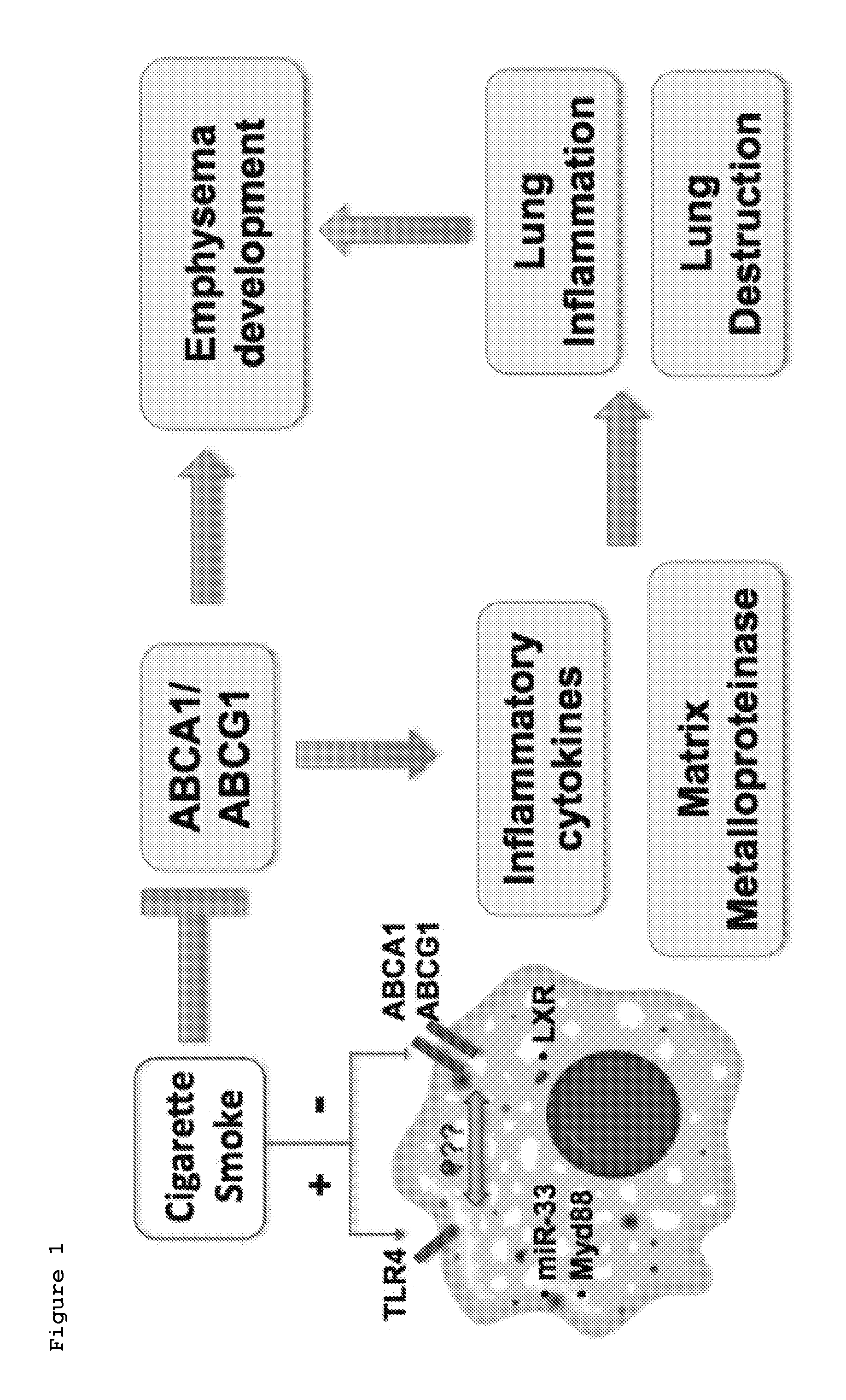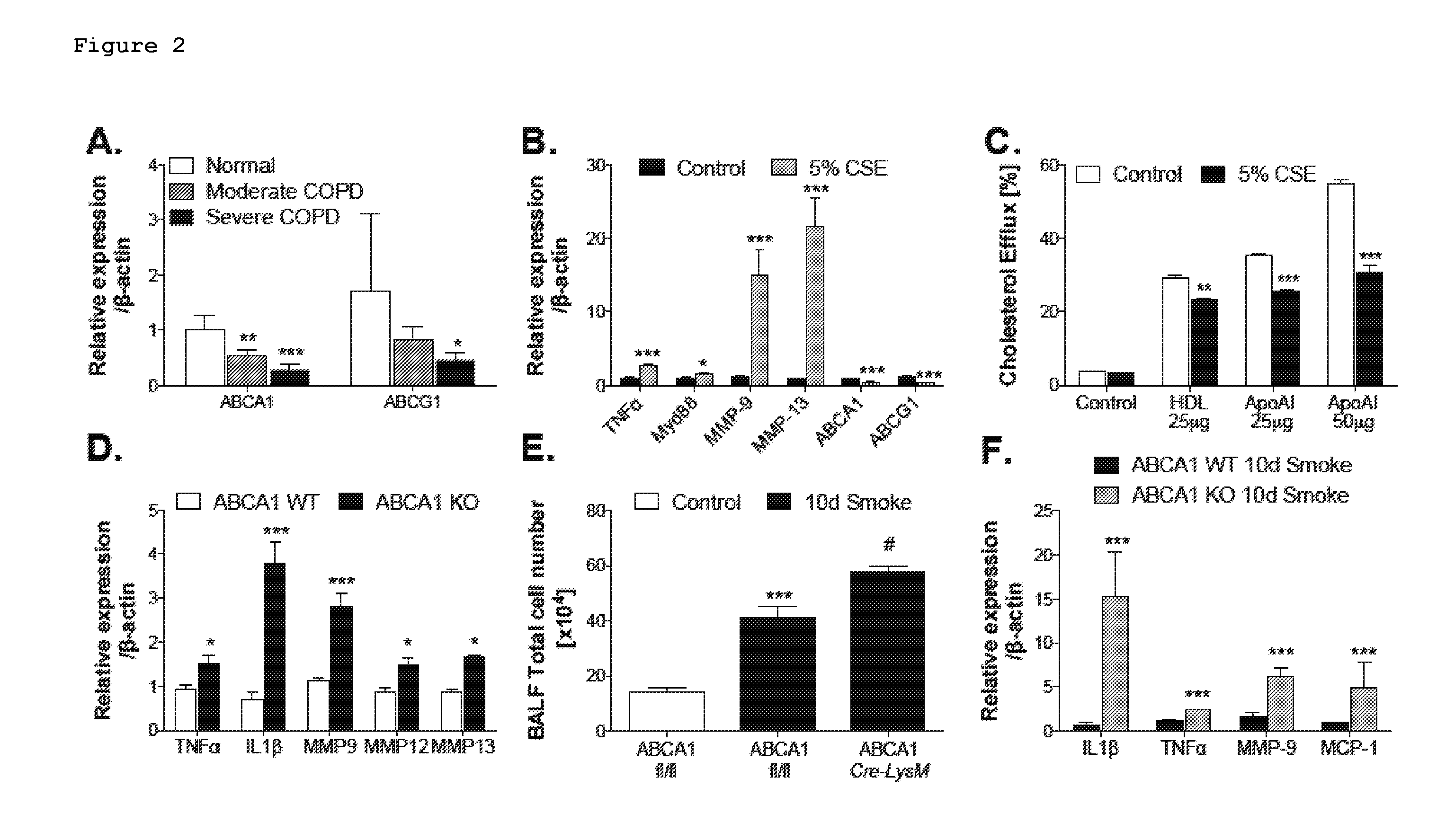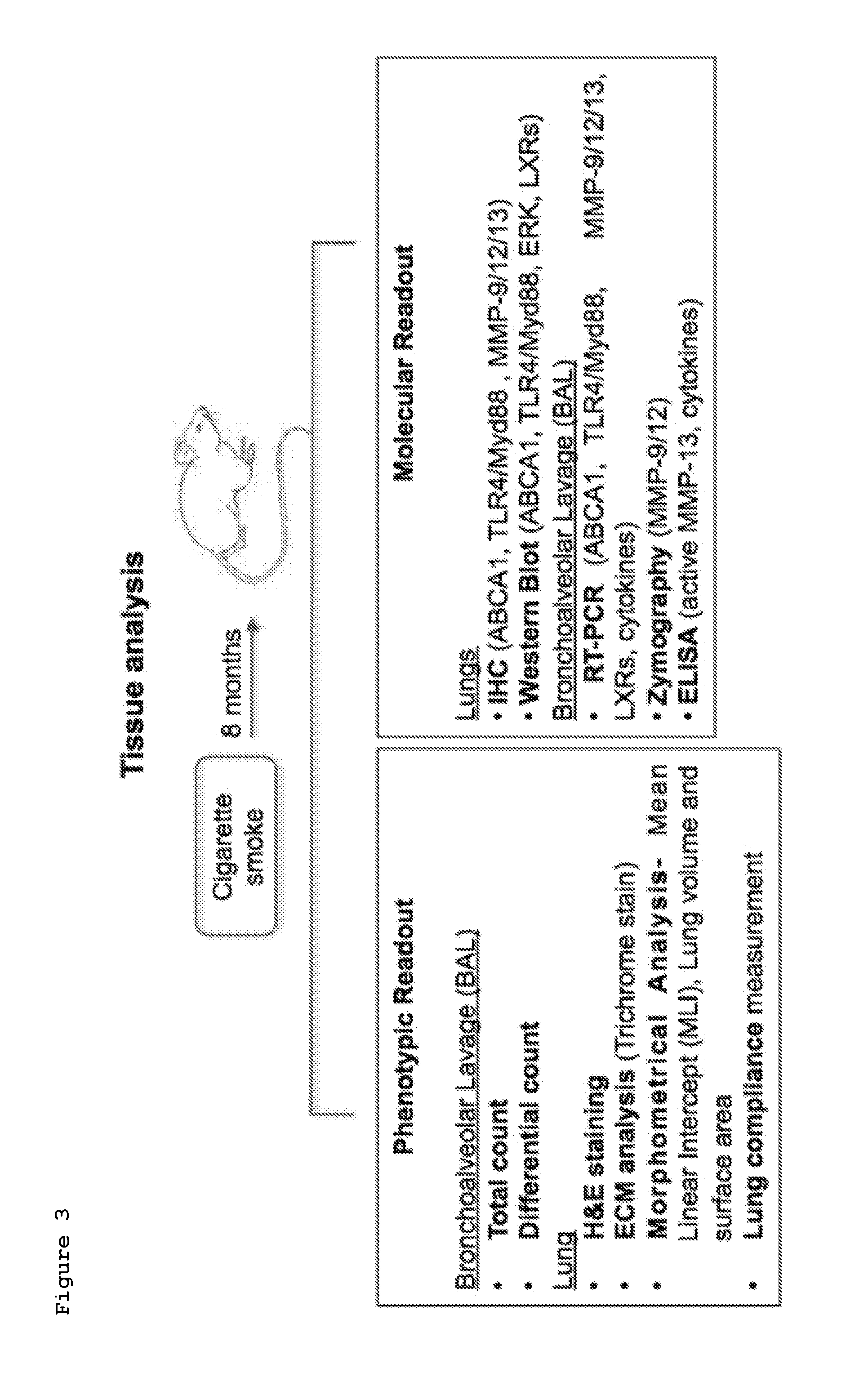Liver x receptor agonists in the treatment of emphysema
a liver x receptor and emphysema technology, applied in the field of liver x receptor agonists in the treatment of emphysema, can solve the problem of insufficient reversibility of progressive airflow limitation
- Summary
- Abstract
- Description
- Claims
- Application Information
AI Technical Summary
Benefits of technology
Problems solved by technology
Method used
Image
Examples
example 1
Treatment of COPD with LXR Agonists
[0267]Innovation
[0268]A recent study by the inventors (Goldklang et al., 2007) identified that ApoE KO mice fed a Western-type diet develop severe systemic hypercholesterolemia suggesting that abnormal cholesterol efflux can then induce pulmonary inflammation through a TLR4 / inflammatory / MMP cascade, ultimately resulting in the development of emphysema (Geraghty et al., 2001; Tall et al., 2002). ApoE promotes macrophage cholesterol efflux via the ABCA1 and ABCG1 cell surface transporters, initiating the formation of HDL particles (Global Initiative for chronic obstructive Lung disease, 2007; Yoshida et al., 2007; Tall et al. , 2007; Ranalletta et al., 20061 Tall et al., 20081 Wang et al., 2004; Yvan-Charvet et al., 2010; Yvan-Charvet et al., 2010a). Deficiency of ABCA1 and ABCG1 results in a significant decrease in macrophage cholesterol efflux, demonstrating that these two receptors play a major role in cholesterol efflux from foam cells to plasma ...
example 2
Modulation of Cholesterol Efflux Through Treatment with an LXR Agonist in Cigarette Smoke Induced Emphysema in Mice
[0343]Methods and results: Studies were performed to investigate the link between cigarette smoke exposure, cholesterol efflux and inflammation in the lung. In the lungs of patients with COPD and BAL of murine smoke exposure models ABC transporter expression was down regulated and correlated with the level of inflammation and emphysema. Mouse macrophages were treated with cigarette smoke extract (CSE) and exhibited impaired cholesterol efflux and loss of ABC-transporter expression with up regulation of MMPs. By reestablishing ABC-dependent cholesterol efflux (by LXR agonist-T0901317-treatment), the cigarette smoke-induced pro-inflammatory cytokines and MMP expression and activity were blocked. To determine the effect. of ABC transporter expression reestablishment, treatment with an LXR agonist was performed on cigarette smoke induced lung injury in vivo (Acute—10 days, ...
example 4
LXR agonists reverse cigarette smoke induced emphysema.
[0400]Human subjects suffering from cigarette smoke inducted emphysema are administered an LXR agonist or placebo for 6 months. The LXR agonist is administered as a monotherapy.
[0401]By 6 months, the emphysema in subjects receiving the LXR agonist is at least partially reversed. In some instances, the emphysema is completely reversed. In contrast, human subjects not administered the LXR agonist do not show reversal of emphysema.
[0402]Discussion
[0403]Highlights[0404]Liver X receptors (LXR) are transcription factors that are largely considered to be cholesterol ‘sensors’, that when activated leads to decrease plasma cholesterol (Viennois et al., 2011).[0405]LXRs are also known to suppress inflammatory signaling in macrophages (Joseph et al., 2002).[0406]Macrophages secret matrix metalloproteases (MMPs) (Webster et al., 2006), which are the primary enzymes in the destruction of lungs in emphysema.[0407]LXR agonists are commercially...
PUM
| Property | Measurement | Unit |
|---|---|---|
| molecular weight | aaaaa | aaaaa |
| pulmonary resistance | aaaaa | aaaaa |
| plasma | aaaaa | aaaaa |
Abstract
Description
Claims
Application Information
 Login to View More
Login to View More - R&D
- Intellectual Property
- Life Sciences
- Materials
- Tech Scout
- Unparalleled Data Quality
- Higher Quality Content
- 60% Fewer Hallucinations
Browse by: Latest US Patents, China's latest patents, Technical Efficacy Thesaurus, Application Domain, Technology Topic, Popular Technical Reports.
© 2025 PatSnap. All rights reserved.Legal|Privacy policy|Modern Slavery Act Transparency Statement|Sitemap|About US| Contact US: help@patsnap.com



